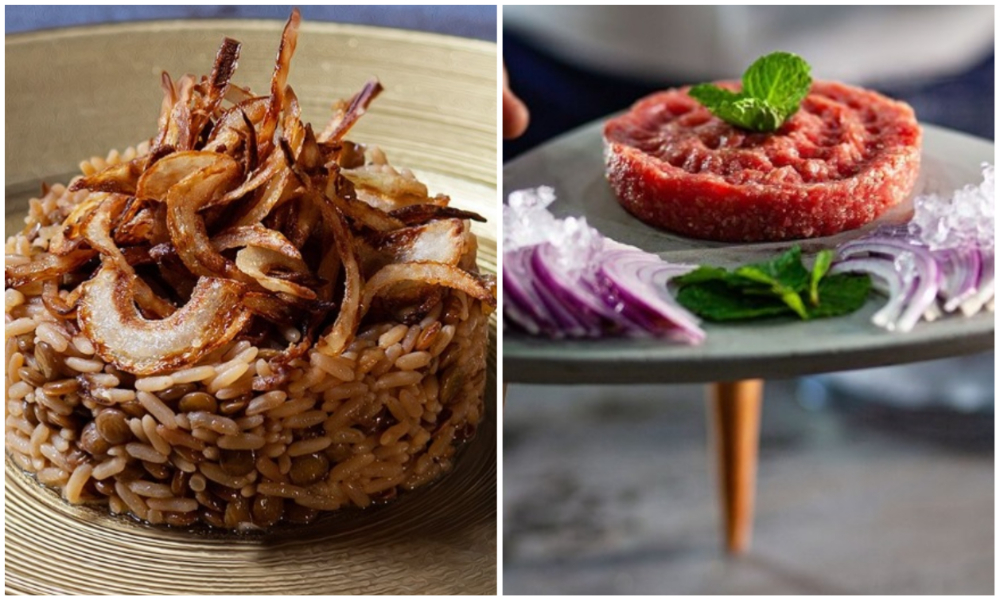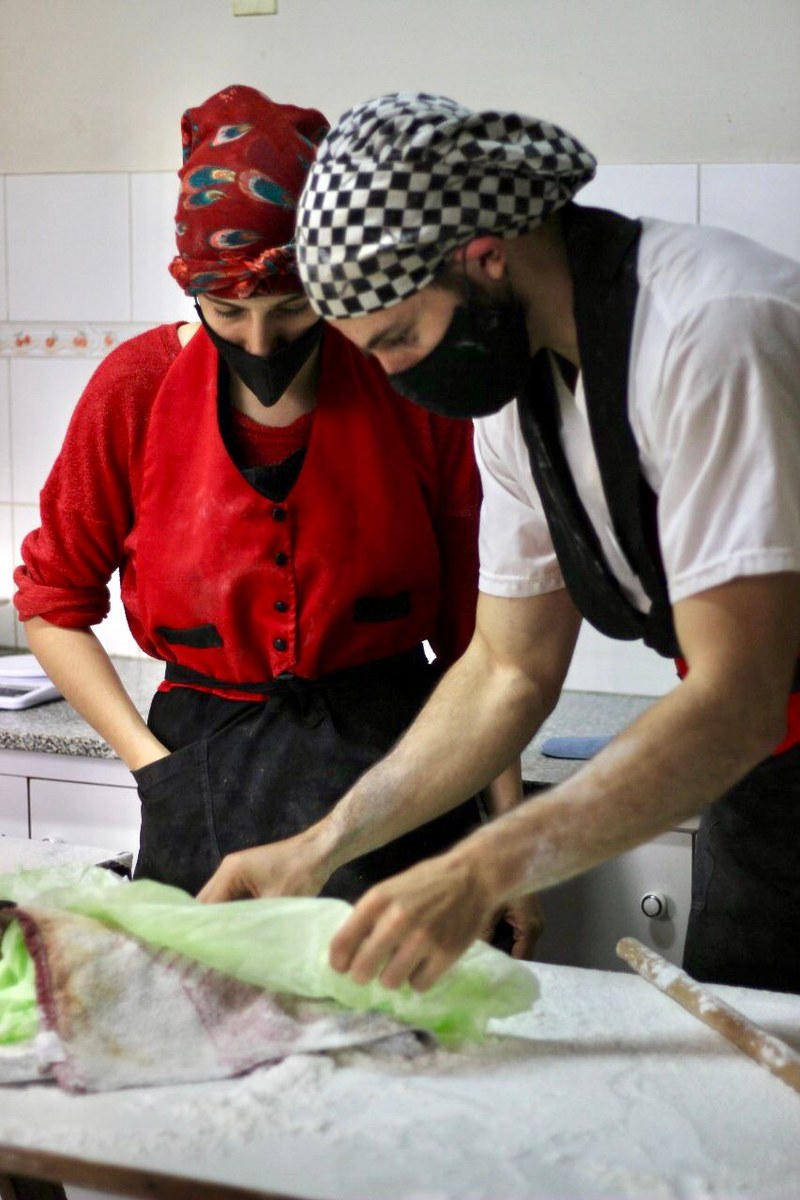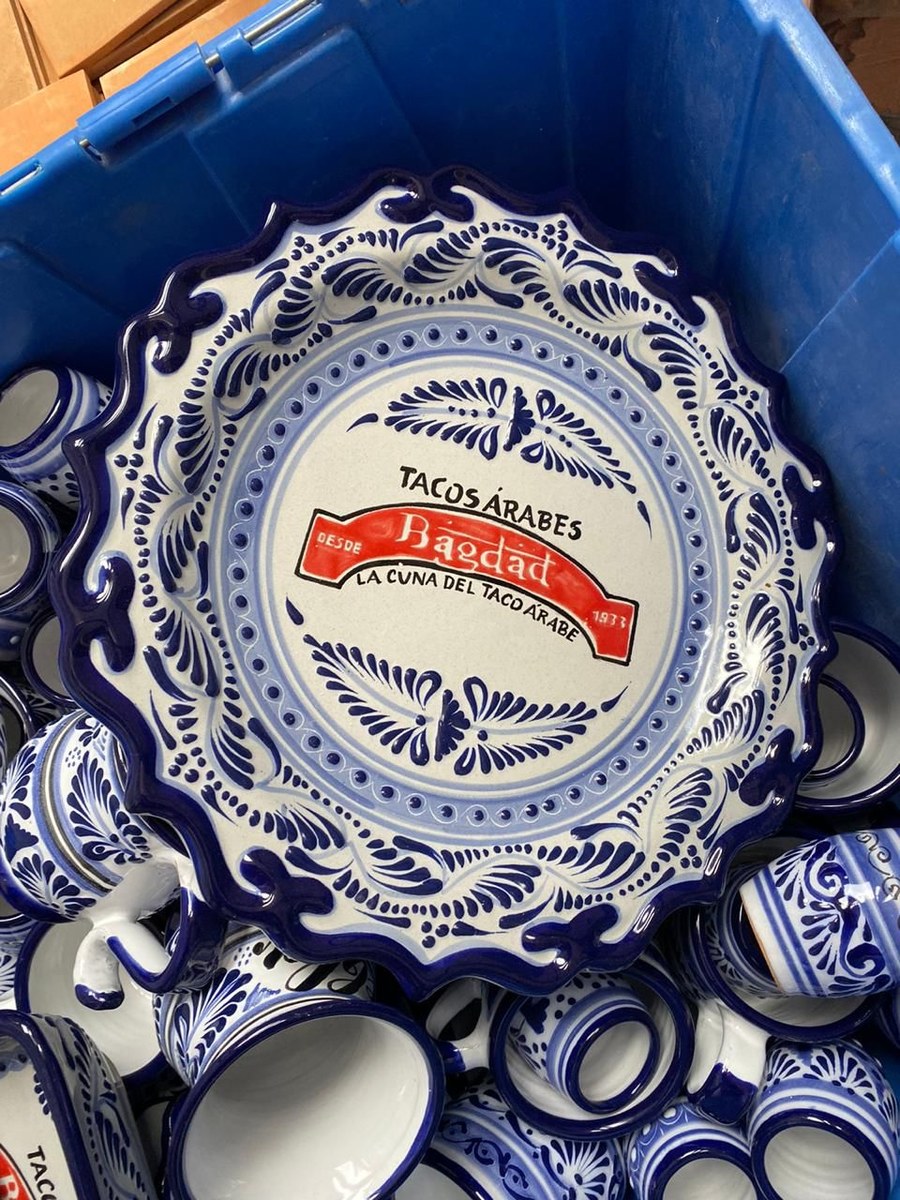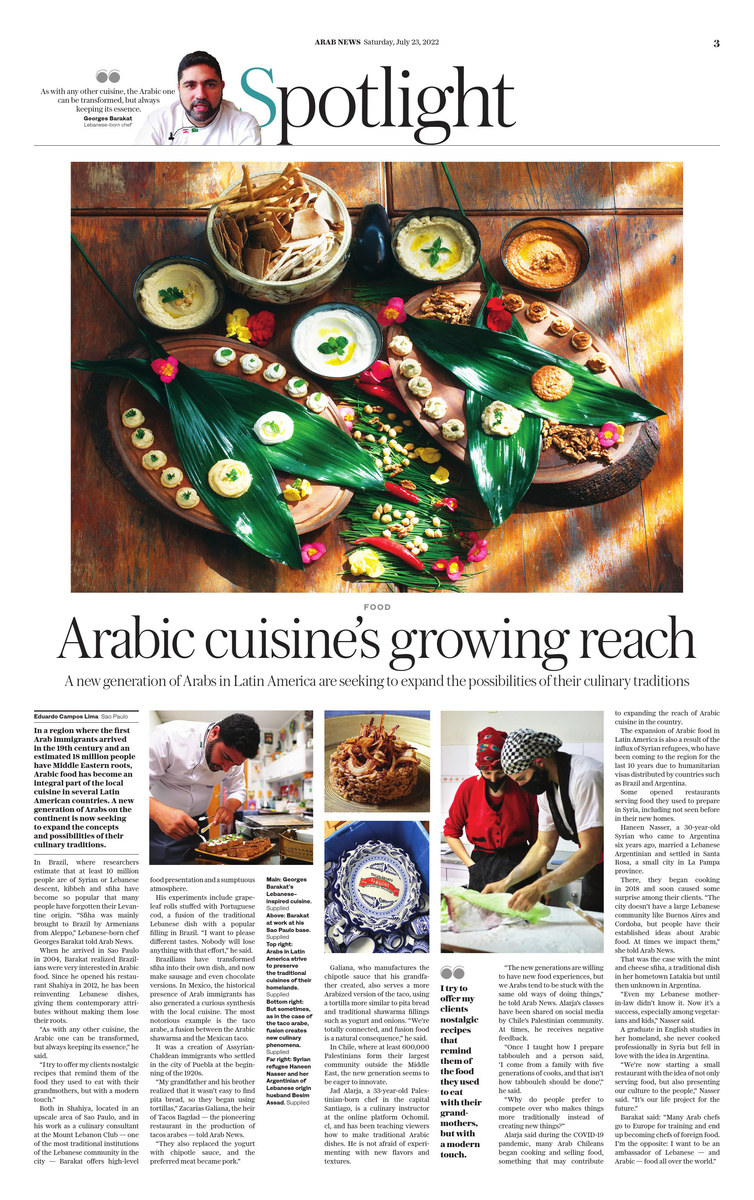[ad_1]
SAO PAULO, Brazil: In a area the place the primary Arab immigrants arrived within the nineteenth century and an estimated 18 million individuals have Center Jap roots, Arabic meals has turn into an integral a part of the native delicacies in a number of Latin American nations. A brand new era of Arabs on the continent is now searching for to develop the ideas and prospects of their culinary traditions.
In Brazil, the place researchers estimate that at the very least 10 million individuals are of Syrian or Lebanese descent, kibbeh and sfiha have turn into so fashionable that many individuals have forgotten their Levantine origin. “Sfiha was primarily delivered to Brazil by Armenians from Aleppo,” Lebanese-born chef Georges Barakat advised Arab Information.
When he arrived within the metropolis of Sao Paulo in 2004, he realized that Brazilians had been very fascinated about Arabic meals. Since he opened his restaurant Shahiya in 2012, he has been reinventing Lebanese dishes, giving them modern attributes with out making them lose their roots.
“As with every different delicacies, the Arabic one might be reworked, however at all times conserving its essence,” he mentioned.
“I attempt to supply my purchasers nostalgic recipes that remind them of the meals they used to eat with their grandmothers, however with a contemporary contact.”

Each in Shahiya, positioned in an upscale space of Sao Paulo, and in his work as a culinary marketing consultant on the Mount Lebanon Membership — one of the vital conventional establishments of the Lebanese group within the metropolis — Barakat gives high-level meals presentation and a luxurious environment.
His experiments embrace grape-leaf rolls full of Portuguese cod, a fusion of the normal Lebanese dish with a preferred filling in Brazil. “I wish to please totally different tastes. No one will lose something with that effort,” he mentioned.
Brazilians have reworked sfiha into their very own dish, and now make sausage and even chocolate variations. In Mexico, the historic presence of Arab immigrants has additionally generated a curious synthesis with the native delicacies. Essentially the most infamous instance is the taco arabe, a fusion between the Arabic shawarma and the Mexican taco.
It was a creation of Assyrian-Chaldean immigrants who settled within the metropolis of Puebla initially of the Nineteen Twenties.

“My grandfather and his brother realized that it wasn’t straightforward to seek out pita bread, in order that they started utilizing tortillas,” Zacarias Galiana, the inheritor of Tacos Bagdad — the pioneering restaurant within the manufacturing of tacos arabes — advised Arab Information.
“In addition they changed the yogurt with chipotle sauce, and the popular meat turned pork.”
Galiana, who manufactures the chipotle sauce that his grandfather created, additionally serves a extra Arabized model of the taco, utilizing a tortilla extra just like pita bread and conventional shawarma fillings corresponding to yogurt and onions. “We’re completely related, and fusion meals is a pure consequence,” he mentioned.
In Chile, the place at the very least 600,000 Palestinians kind their largest group outdoors the Center East, the brand new era appears to be desirous to innovate.
Jad Alarja, a 33-year-old Palestinian-born chef within the capital Santiago, is a culinary teacher on the on-line platform Ochomil.cl, and has been instructing viewers the best way to make conventional Arabic dishes. He’s not afraid of experimenting with new flavors and textures.

“The brand new generations are keen to have new meals experiences, however we Arabs are usually caught with the identical previous methods of doing issues,” he advised Arab Information. Alarja’s courses have been shared on social media by Chile’s Palestinian group. At instances, he receives destructive suggestions.
“As soon as I taught how I put together tabbouleh and an individual mentioned, ‘I come from a household with 5 generations of cooks, and that isn’t how tabbouleh ought to be executed’,” he mentioned.
“Why do individuals want to compete over who makes issues extra historically as a substitute of making new issues?”
Alarja mentioned in the course of the COVID-19 pandemic, many Arab Chileans started cooking and promoting meals, one thing that will contribute to increasing the attain of Arabic delicacies within the nation.
The enlargement of Arabic meals in Latin America can be a results of the inflow of Syrian refugees, who’ve been coming to the area for the final 10 years on account of humanitarian visas distributed by nations corresponding to Brazil and Argentina.

A few of them opened eating places and have been serving the meals they used to organize in Syria, which may at instances shock Latin Individuals used to a selected Arabic delicacies.
Haneen Nasser, a 30-year-old Syrian who got here to Argentina six years in the past, married a Lebanese Argentinian and settled in Santa Rosa, a small metropolis in La Pampa province.
There, they started cooking in 2018 and shortly prompted some shock amongst their purchasers. “The town doesn’t have a big Lebanese group like Buenos Aires and Cordoba, however individuals have their established concepts about Arabic meals. At instances we influence them,” she advised Arab Information.
That was the case with the mint and cheese sfiha, a standard dish in her hometown Latakia however till then unknown in Argentina.

“Even my Lebanese mother-in-law didn’t realize it. Now it’s a hit, particularly amongst vegetarians and children,” Nasser mentioned.
A graduate in English research, she by no means cooked professionally in Syria however fell in love with the concept in Argentina. At time, she asks for assist from her mom and aunt in Syria with some recipes.
“We’re now beginning a small restaurant with the concept of not solely serving meals, but additionally presenting our tradition to the individuals,” Nasser mentioned. “It’s our life challenge for the long run.”
Barakat mentioned: “Many Arab cooks go to Europe for coaching and find yourself changing into cooks of overseas meals. I’m the alternative: I wish to be an envoy of Lebanese — and Arabic — meals everywhere in the world.”

[ad_2]
Source link








